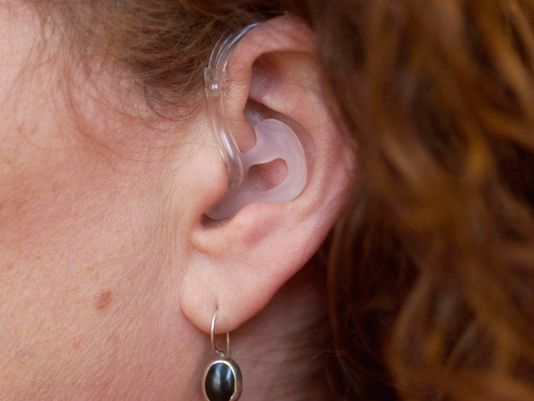Blog
-

For anyone who thinks hearing loss is limited to hearing aids, a group of health specialists are ready to prove otherwise.
 26 Sep , 2016
26 Sep , 2016
On Sept. 28, a group of doctors and healthcare consultants will be participating in the “Health Hearing = Healthy Brain” event, to educate the public on hearing loss. With a focus on individuals who use hearing aids, the speakers will be covering the causes of hearing loss and treatment for those already suffering from hearing loss..
One of the event’s speakers, Kelli Charlton, Intermountain Audiology director of education, said she hopes to assist those in attendance in order for them to have a better understanding of what their options are.
“They’ve asked me to come in and help people make sense of all of this information that is available in the market today so it’s not so scary, it’s not so frightening, it’s not so big,” Charlton said. “Its something fun so they can understand why it’s important to take care of their hearing.”
Some form of hearing loss effects 15 percent of the American population while 26 million Americans suffer from high-frequency hearing loss, according to the National Institute on Deafness and Other Communication Disorders.
Data from the NIDCD shows 50 percent of people ages 75 and above have hearing loss, while 25 percent of people between the ages of 65 and 74 have hearing loss. The NIDCD indicates roughly 28.8 million Americans could benefit from a good-quality hearing device.
Charlton said they also want to inform the public about new technology that is available for people to combat hearing loss. She explained this may include the use of Bluetooth devices and digitally-modified hearing aids.
“Often times people think that hearing aids are still the hearing aids of old, which are squeaky, monotone devices that echo,” Charlton said. “The truth is, new technology is highly digitized…so the new technology helps the brain to process that sound.”
A second event speaker, Pamela Montgomery-Earl, Intermountain Audiology doctor of audiology, said another part of holding this seminar is to discuss the various diseases that can cause hearing loss. According to Montgomery-Earl, deafness can be a result of diabetes or cardiovascular diseases in addition to noise toxicity. She noted any kind of medical condition that effects a person’s circulation will most likely effect their hearing.
“When people lose their hearing, then the information that is going through the ear is not stimulating the auditory processing centers in the brain,” Montgomery-Earl said. “When that occurs, then other senses are going to take over that area of the brain that is normally reserved for processing sound.”
People with moderate to profound hearing loss are also being encouraged to participate in a focus group on Oct. 7. The focus group will include treatment for hearing loss while also providing hearing devices to participants.
Charlton said the focus group would also help them get feedback on the new technology out there. She said she hopes by providing this information they will get more people interested in taking a step toward treating their hearing loss.
“It’s not anything that can wait for treatment,” Montgomery-Earl said. “I think before people thought, ‘well, that’s an old person’s disease;’ it certainly is not, it happens in all ages.”
The event will take place Sept. 28 at 8 a.m.
Source: “The Spectrum”, Nichole Osinski, reporter. ClarityFocusGroup.
com Image credit: GNS





























































































































































































































































































































































































































































































































































































